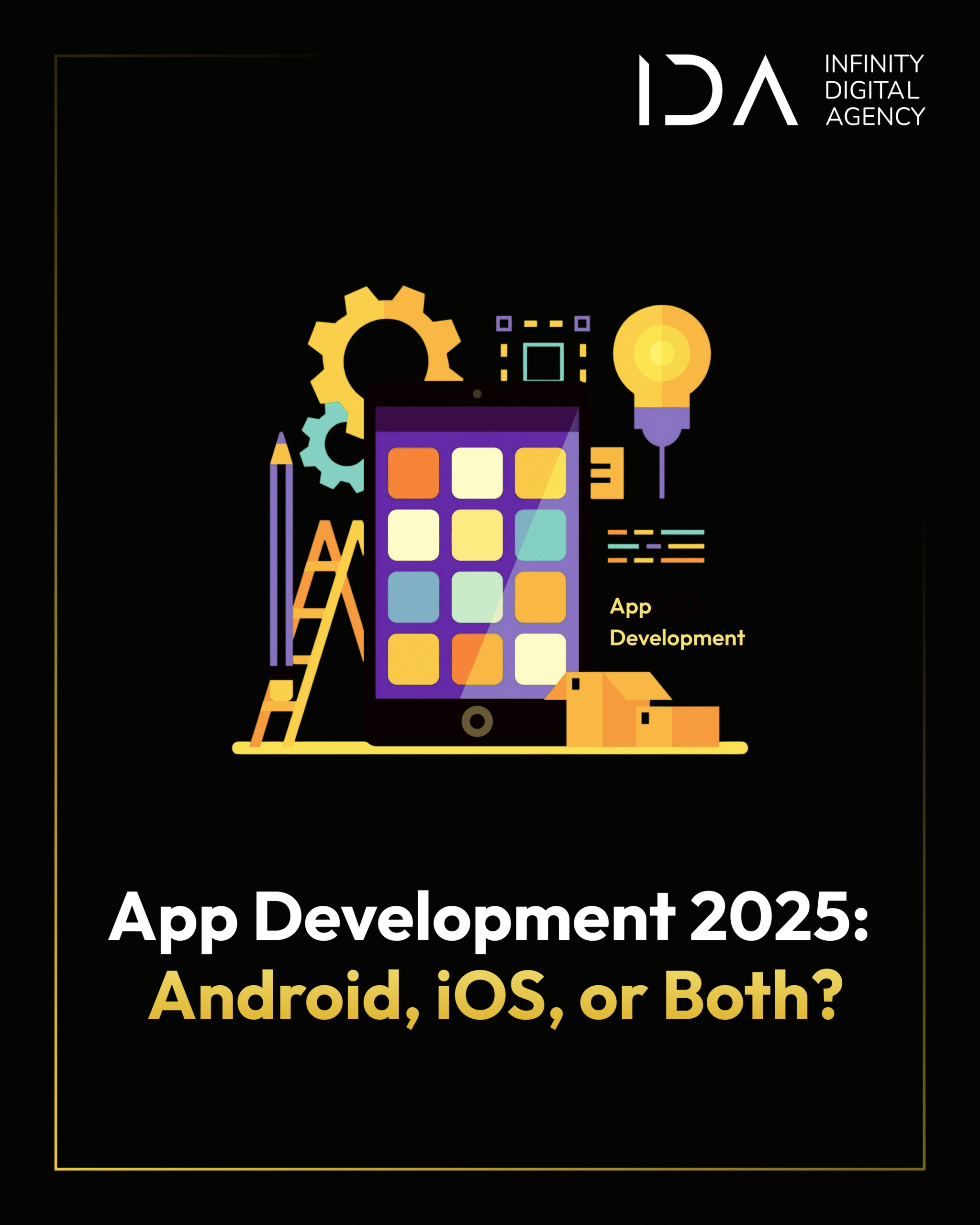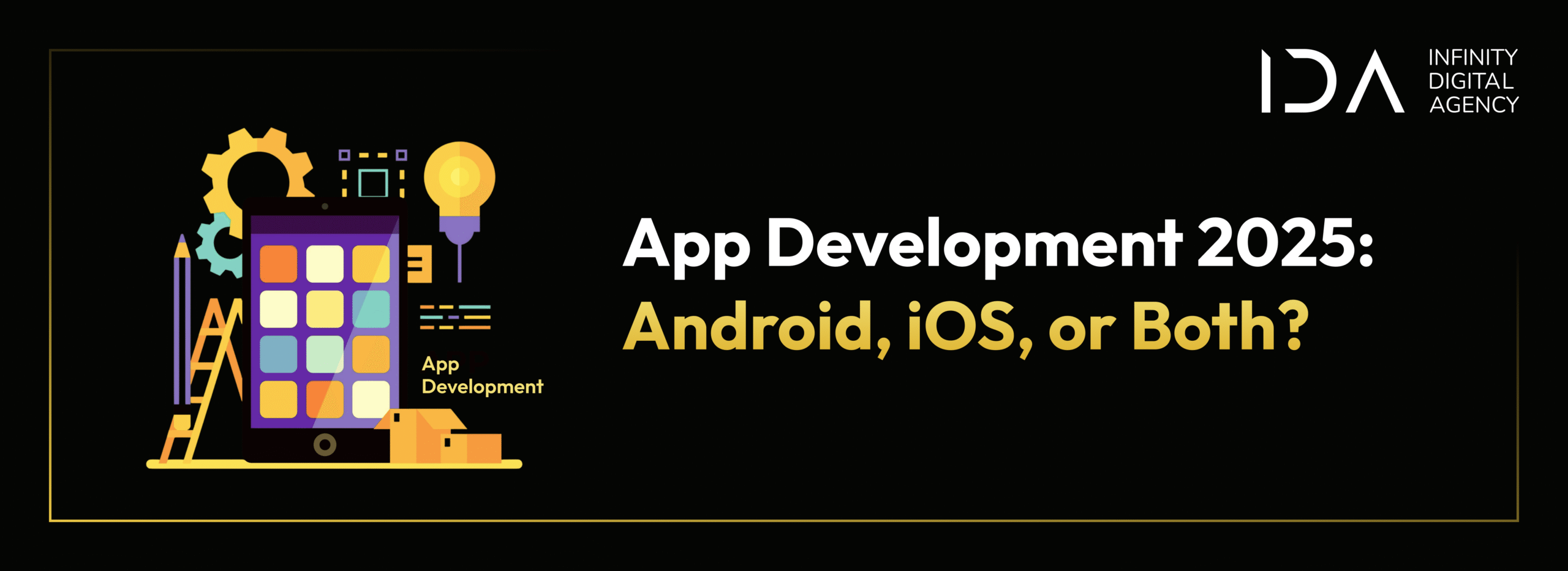A new startup with big dreams of building a mobile app that connects with users and grows in the Nepali market and beyond. But during app development, there’s one big question to answer: Should they build for Android or iOS first?
Choosing the right platform is super important, especially in 2025 when mobile users are more active than ever. Picking the wrong one could mean missing out on your main audience or spending more than you need to.
In this guide, we’ll first explain what Android and iOS app development actually mean. Then, we’ll compare them side by side. Finally, we’ll help match the best option to what TSI really needs.
Let’s keep it simple and find out what works best for you.
What is iOS App Development?
iOS app development means creating mobile apps that run on Apple devices like iPhones and iPads. These apps only work on Apple’s operating system (iOS), which is known for being smooth, secure, and user-friendly.
Developers usually use Swift or Objective-C as programming languages, and they build apps using Xcode, which is Apple’s official development tool.
The main benefits of iOS app development are:
- A consistent and polished user experience
- A premium user base that is more likely to spend money on apps
- Strong security and high-quality standards for all apps
What is Android App Development?
Android app development is the process of making apps for devices that run on the Android operating system. This includes a wide range of phones and tablets made by many different brands like Samsung, Xiaomi, and Oppo.
Developers usually use Kotlin or Java as programming languages and build apps using Android Studio, which is Google’s official development platform.
The key advantages of Android app development are:
- A larger market reach, especially in countries like Nepal
- More flexibility in design and features
- Strong presence in Asia and developing countries, making it ideal for reaching a wide audience
Choosing the Right Platform for Your App in 2025
If you’re planning to build a mobile app in 2025, one of the first and most important decisions is choosing the right platform—Android or iOS. So let us find out which is better?
Market Reach
Android has a much larger market share globally, and especially in Nepal, where most people use Android smartphones due to their affordability and variety. This makes Android the better option if your goal is to reach a wider audience. On the other hand, iOS has a smaller user base but tends to attract high-income users who are willing to spend more money on apps and in-app purchases. If you’re targeting a niche or premium group, iOS might be more profitable despite the smaller reach.
Development Time
Developing an Android app usually takes more time compared to iOS. This is because there are so many different Android devices with different screen sizes and software versions, which require extra testing and adjustments. iOS apps are generally quicker to develop since Apple has a limited range of devices and a more controlled ecosystem, which makes the process smoother and more straightforward.
Development Cost
Android development can cost more due to the need to test the app on many different devices, operating systems, and screen resolutions. This increases the time and effort required. In contrast, iOS development is usually less expensive because Apple’s environment is more streamlined. Fewer device types and consistent standards reduce development time and make it easier to maintain.
User Experience
iOS is known for offering a consistent and polished user experience. Apple follows strict design rules, which help developers create clean, easy-to-use apps. On Android, user experience can vary depending on the device and the manufacturer. While Android gives developers more creative freedom, it also means there can be inconsistency in how the app looks and feels across different phones.
Security
When it comes to security, iOS takes the lead. Apple has strong built-in security features, regular updates, and a strict app review process that helps protect users from harmful apps. Android, being an open platform, is more vulnerable to security risks. Developers need to take extra steps to make sure their Android apps are safe and secure for users.
Monetization Potential
iOS users generally spend more money on apps and in-app purchases compared to Android users. This means iOS apps often make more revenue per user, especially if you’re offering paid services or subscriptions. Android, while having more users, tends to bring in less money per user. However, its larger audience can still make it profitable through ads or volume-based models.
Final Conclusion
Choosing between Android and iOS app development in 2025 depends on your goals, budget, and target audience. Android is ideal for startups looking to reach a larger user base, especially in Nepal, while iOS is better for targeting premium users and generating higher revenue per user.
If you’re aiming for both reach and efficiency, cross-platform development is a smart option. Whatever your choice, Infinity Digital Agency is here to help you build high-quality, user-friendly apps that match your vision. Get in touch with us today to turn your idea into a successful mobile app!

